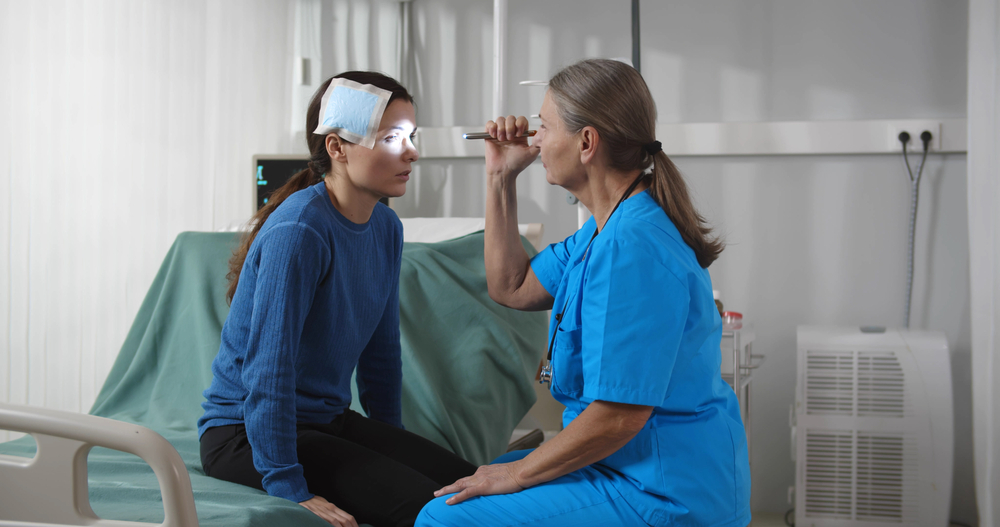
Your eyes are one of the most delicate and vital organs in your body. Any sign of trouble should never be taken lightly, as it could potentially be an eye emergency. It is crucial to understand what constitutes an eye emergency and to be able to recognize the signs and symptoms. By doing so, you can seek immediate care from an optometrist, ensuring the best possible outcome for your eye health.
Understanding Eye Emergencies
Eye emergencies can range from infections and injuries to chemical burns and foreign objects in the eye. If you experience any of symptoms of eye issues, it is important to seek medical attention promptly. Delaying treatment can lead to complications and even permanent damage to your eyesight.
Common Signs and Symptoms of an Eye Infection
Eye infections can occur due to bacteria, viruses, or fungi. Eye infections can be caused by various factors, such as poor hygiene, contact lens misuse, or exposure to contaminated water. The signs and symptoms of an eye infection may vary depending on the type and severity, but some common indicators include redness, swelling, pain, itching, discharge, and increased sensitivity to light. You may also experience blurred vision or a feeling of grittiness in your eyes.
If you notice any of these symptoms, it is crucial not to ignore them. Ignoring an eye infection can lead to further complications, such as corneal ulcers or even vision loss. It is important to seek prompt medical attention from an optometrist who can diagnose the underlying cause of the infection and provide appropriate treatment, which may include antibiotic eye drops or ointments.
Recognizing the Symptoms of a Foreign Object in the Eye
Getting a foreign object in your eye can be a distressing experience. Whether it's a small particle of dust or a larger object like a metal shard, it is essential to address the situation promptly. Common symptoms of a foreign object in the eye include a sensation of something in your eye, excessive tearing, redness, pain, and difficulty keeping your eye open.
If you suspect that you have a foreign object in your eye, it is important not to rub or touch your eye, as this can exacerbate the problem and potentially cause further damage. Instead, try to flush your eye gently with clean water to remove the object. If the object does not come out or if you experience persistent symptoms, it is crucial to seek immediate care from an optometrist. They have the necessary tools and expertise to safely remove the foreign object and assess any potential damage to your eye.
Identifying the Signs of Chemical Burns
Chemical burns to the eye can occur when your eyes come into contact with certain substances, such as acids, alkalis, or solvents. These burns can cause severe damage to the eye tissues and may lead to vision loss if not treated promptly. Common signs of a chemical burn to the eye include redness, pain, blurred vision, swelling, tearing, and a sensation of something in your eye.
If you experience a chemical burn to your eye, it is crucial to take immediate action. Rinse your eye gently with clean water for at least 15 minutes to flush out the chemical. Do not use any other substances, such as eye drops or ointments, unless instructed by a medical professional. After rinsing, seek immediate medical attention from an optometrist or visit the nearest emergency room. They will be able to assess the severity of the burn and provide appropriate treatment to minimize damage and promote healing.
Prevention Tips for Avoiding Eye Emergencies
While it is impossible to completely eliminate the risk of eye emergencies, there are steps you can take to reduce the likelihood of experiencing one. Here are some prevention tips to keep your eyes safe and healthy:
- Practice good hygiene: Wash your hands thoroughly before touching your eyes or handling contact lenses to prevent infections.
- Use protective eyewear: When engaging in activities that pose a risk to your eyes, such as sports or working with chemicals, always wear appropriate protective eyewear, such as goggles or safety glasses.
- Handle contact lenses properly: Follow the recommended cleaning and storage guidelines for your contact lenses to prevent infections and other complications.
- Avoid rubbing your eyes: Rubbing your eyes can introduce bacteria or irritants, increasing the risk of infections or corneal abrasions.
By following these preventive measures, you can significantly reduce the chances of experiencing an eye emergency and protect your vision for years to come.
Ensuring Your Optimal Vision and Eye Health
By understanding the signs and symptoms of an eye emergency, you can take prompt action and seek immediate care from an optometrist. Whether it's an eye infection, a foreign object in your eye, or a chemical burn, early intervention is crucial to prevent further complications and protect your vision. Your eyes deserve the best care, so don't hesitate to seek professional help when needed.
If you are concerned about your eye health or for further guidance on how to handle eye emergencies, visit Eyewellniss at our office in Edgewater, Livingston, Watchung, or Paramus, New Jersey. Please call (201) 945-8931, (973) 535-1171, (908) 322-5020 or (201) 712-0888 to schedule an appointment today.








